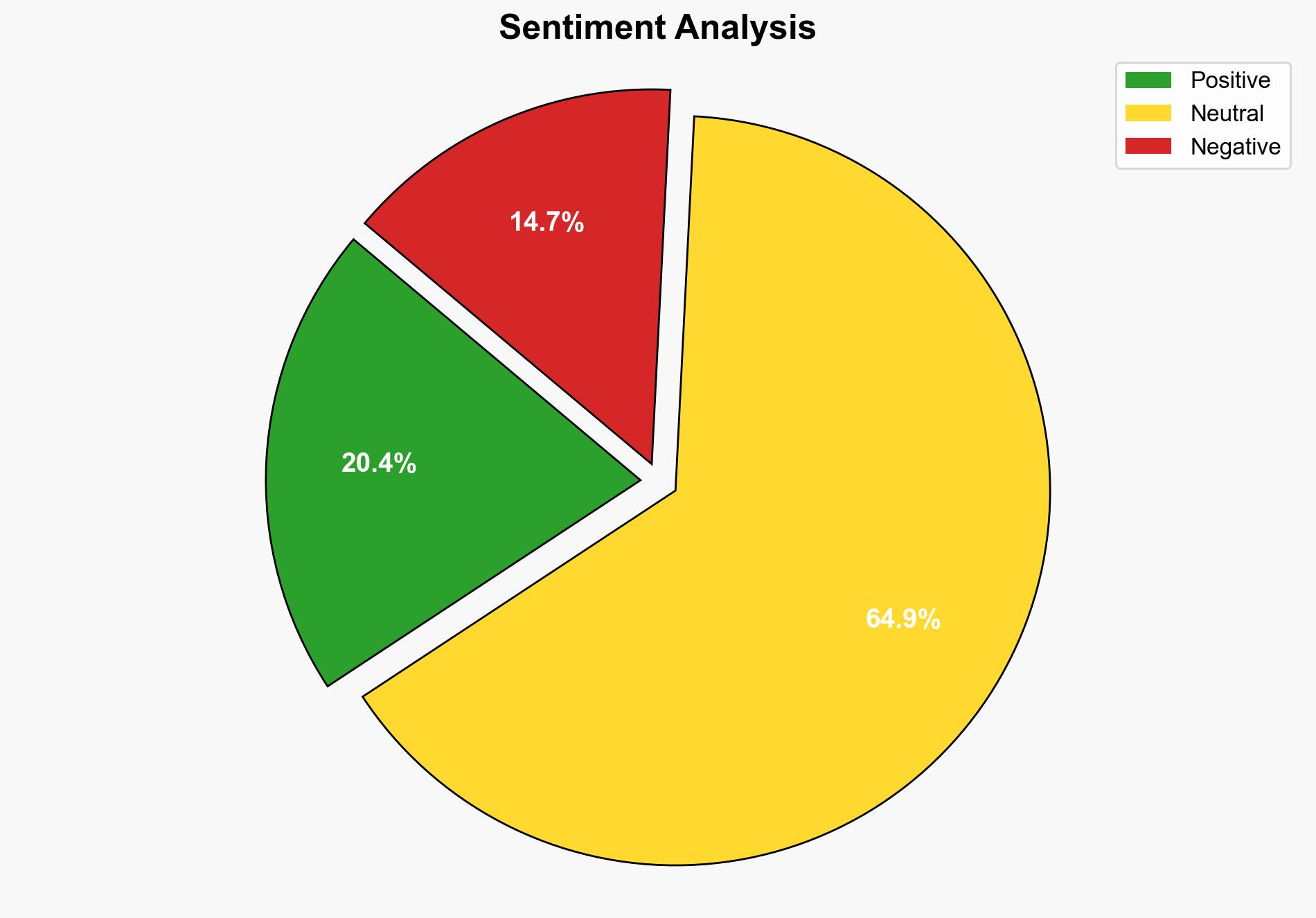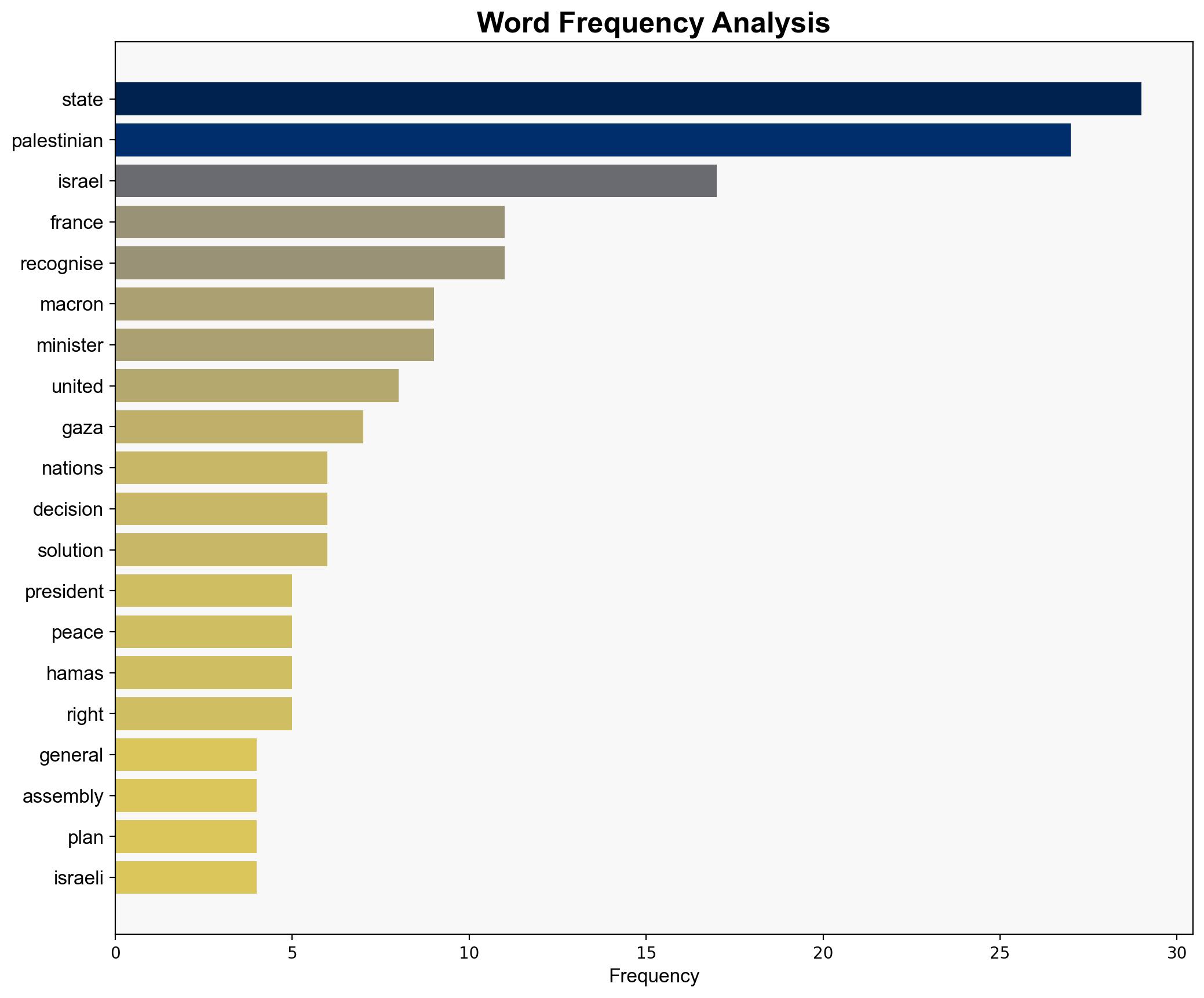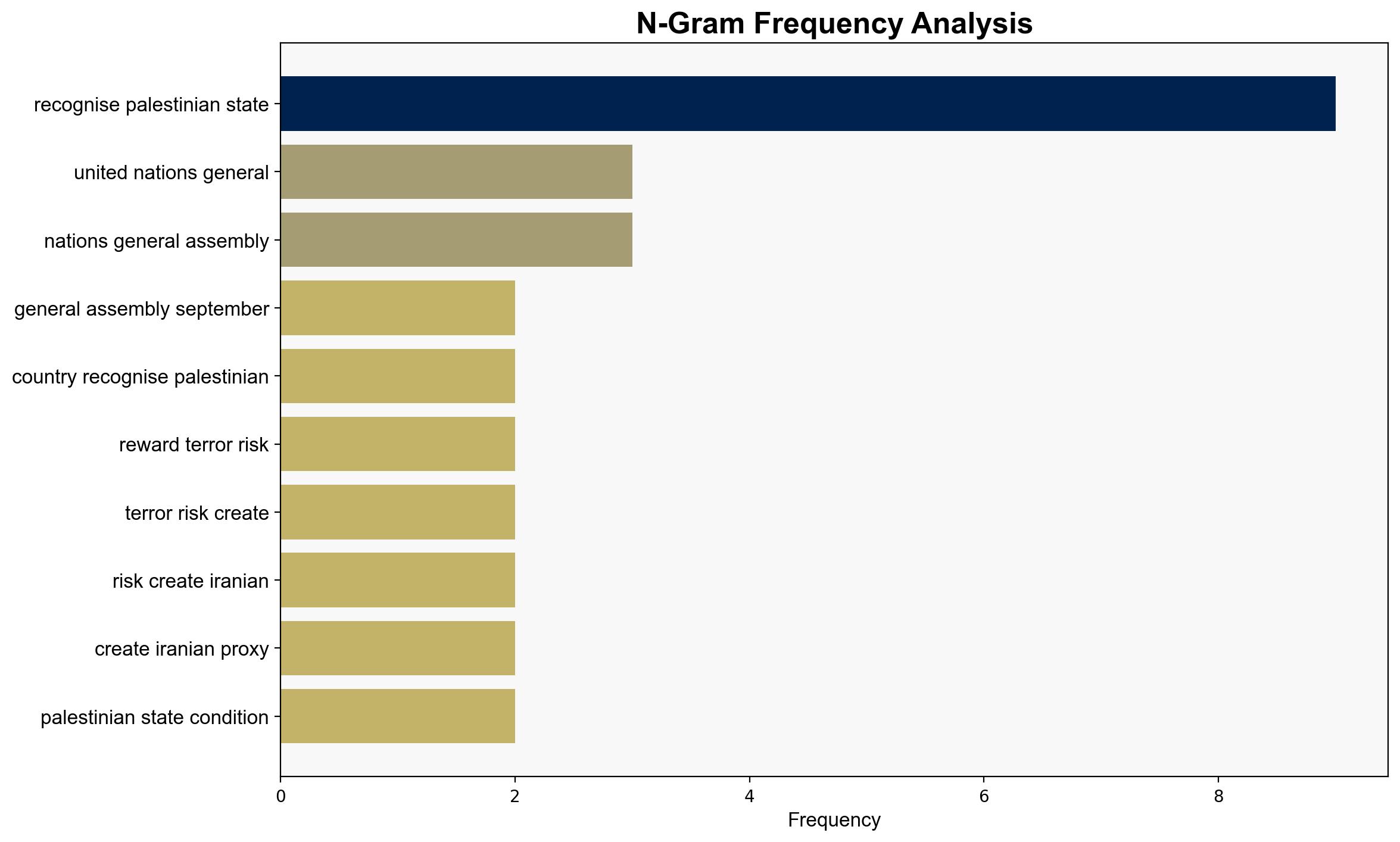France to recognise a Palestine state – Macron – RTE
Published on: 2025-07-25
Intelligence Report: France to recognise a Palestine state – Macron – RTE
1. BLUF (Bottom Line Up Front)
France’s decision to recognize a Palestinian state at the United Nations General Assembly could significantly alter geopolitical dynamics in the Middle East. The most supported hypothesis suggests this move is a strategic effort by France to position itself as a mediator in the Israeli-Palestinian conflict, potentially increasing its influence in the region. Confidence in this hypothesis is moderate due to potential backlash from key allies like the United States and Israel. Recommended action includes diplomatic engagement with both allies and regional stakeholders to mitigate tensions and explore pathways for peace.
2. Competing Hypotheses
1. **Hypothesis 1**: France’s recognition of a Palestinian state is a strategic maneuver to enhance its diplomatic influence in the Middle East, positioning itself as a key mediator in the Israeli-Palestinian conflict.
2. **Hypothesis 2**: The decision is primarily driven by domestic political considerations, aiming to appease France’s large Muslim community and strengthen internal social cohesion.
Using the Analysis of Competing Hypotheses (ACH) method, Hypothesis 1 is better supported by Macron’s public statements and France’s historical commitment to Middle East peace efforts. Hypothesis 2 is less supported due to the lack of explicit domestic political pressures highlighted in the intelligence.
3. Key Assumptions and Red Flags
– **Assumptions**: France believes it can mitigate backlash from Israel and the United States through diplomatic channels. France assumes its recognition will inspire other nations to follow suit.
– **Red Flags**: Strong opposition from Israel and the United States could lead to diplomatic isolation or economic repercussions for France. The lack of detailed plans on how France intends to manage these risks is a significant blind spot.
4. Implications and Strategic Risks
– **Geopolitical Risks**: France’s decision could strain its relations with Israel and the United States, potentially impacting trade and security cooperation.
– **Regional Stability**: This move might embolden Palestinian factions, potentially leading to increased tensions or violence in the region.
– **Diplomatic Influence**: If successful, France could enhance its role as a mediator, but failure could diminish its credibility and influence.
5. Recommendations and Outlook
- Engage in proactive diplomacy with Israel and the United States to clarify France’s intentions and seek common ground.
- Coordinate with European Union partners to build a unified approach to Middle East peace efforts.
- Scenario Projections:
- **Best Case**: France’s recognition leads to renewed peace talks and strengthens its diplomatic standing.
- **Worst Case**: Diplomatic fallout with Israel and the United States leads to economic and political isolation.
- **Most Likely**: Initial tensions are followed by diplomatic negotiations, with limited immediate impact on the ground.
6. Key Individuals and Entities
– Emmanuel Macron
– Mahmoud Abbas
– Benjamin Netanyahu
– Marco Rubio
– Peter Kyle
– Keir Starmer
– Mark Carney
7. Thematic Tags
national security threats, geopolitical strategy, Middle East peace process, diplomatic relations




